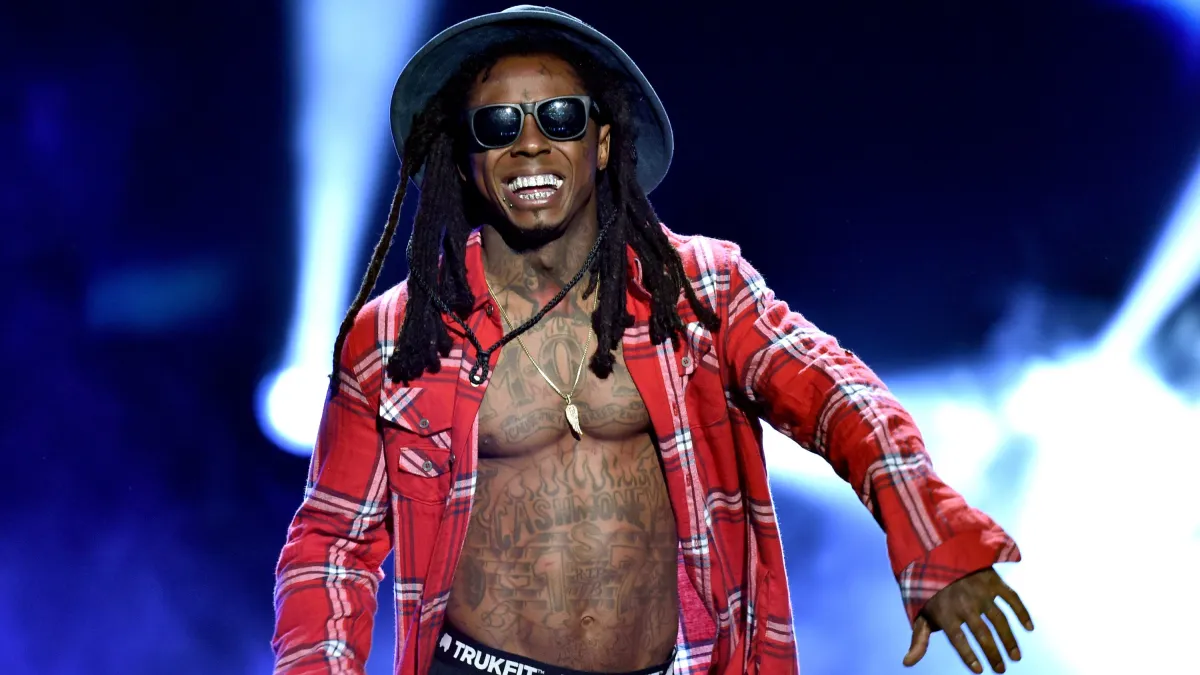Lil Wayne, born Dwayne Michael Carter Jr. on September 27, 1982, in New Orleans, Louisiana, is a rapper, songwriter, and record executive who has left an indelible mark on the music industry. Known for his lyrical prowess, unique voice, and ability to adapt to changing trends, Lil Wayne is often regarded as one of the greatest rappers of all time. His journey from a young prodigy in the streets of New Orleans to a global music icon is a testament to his talent, resilience, and influence. This article explores his life, career, and legacy.
Early Life and Musical Beginnings
Lil Wayne grew up in the Hollygrove neighborhood of New Orleans, a community marked by poverty and challenges. Despite these circumstances, Carter displayed exceptional intelligence and creativity from a young age. He wrote his first rap song at the age of eight and soon caught the attention of Bryan “Birdman” Williams, co-founder of Cash Money Records.
At just 11 years old, Lil Wayne became the youngest artist signed to Cash Money Records. His early collaborations with fellow rapper B.G. under the duo name “The B.G.’z” laid the foundation for his career. By 1997, he joined the hip-hop group Hot Boys, alongside Juvenile, Turk, and B.G. The group’s debut album, Get It How U Live!, and their follow-up, Guerrilla Warfare, brought them mainstream success, with hits like “Bling Bling” becoming cultural phenomena.
Solo Career and Breakthrough

Lil Wayne’s solo career began with the release of his debut album, Tha Block Is Hot, in 1999. The album was a commercial success, earning platinum certification and establishing him as a rising star in the rap world. Subsequent albums, Lights Out (2000) and 500 Degreez (2002), showcased his growth as an artist, though they did not achieve the same level of acclaim.
The turning point in Lil Wayne’s career came with the release of Tha Carter in 2004. The album marked the beginning of a new era for the rapper, with hits like “Go DJ” and a more refined lyrical style. Tha Carter II (2005) further solidified his status, featuring tracks like “Fireman” and “Hustler Musik.”
The Carter III and Mainstream Success
Lil Wayne reached the pinnacle of his career with the release of Tha Carter III in 2008. The album debuted at number one on the Billboard 200 chart, selling over one million copies in its first week. It featured chart-topping singles like “Lollipop,” “A Milli,” and “Got Money,” showcasing his versatility and mass appeal.
Tha Carter III earned Lil Wayne four Grammy Awards, including Best Rap Album, and cemented his place as a global superstar. His ability to blend clever wordplay with infectious beats resonated with fans and critics alike, making the album a defining moment in hip-hop history.
Young Money and Mentorship

In 2005, Lil Wayne founded his own record label, Young Money Entertainment, under the Cash Money umbrella. The label became a launching pad for some of the biggest names in music, including Drake, Nicki Minaj, and Tyga. Wayne’s mentorship and business acumen helped shape the careers of these artists, further solidifying his influence on the industry.
Young Money’s compilation album, We Are Young Money (2009), featured hits like “BedRock” and “Every Girl,” showcasing the collective talent of the label’s roster. The success of Young Money artists contributed to Lil Wayne’s legacy as not only a rapper but also a visionary leader in hip-hop.
Legal Troubles and Incarceration
Despite his success, Lil Wayne’s career has been marred by legal issues and controversies. In 2010, he served an eight-month prison sentence at Rikers Island for gun possession. During his incarceration, he released the album I Am Not a Human Being, which debuted at number two on the Billboard 200 and later climbed to number one.
Wayne’s ability to remain relevant and productive during challenging times demonstrated his resilience and dedication to his craft. His experiences also added depth to his music, as he often reflected on his struggles and triumphs in his lyrics.
Musical Evolution and Later Projects
Lil Wayne continued to evolve as an artist with subsequent releases, including Tha Carter IV (2011) and Tha Carter V (2018). Both albums debuted at number one on the Billboard 200, with Tha Carter V breaking streaming records upon its release. Tracks like “6 Foot 7 Foot,” “How to Love,” and “Uproar” showcased his ability to adapt to changing musical trends while staying true to his roots.
In addition to his solo work, Wayne has collaborated with a wide range of artists across genres, from Eminem and Jay-Z to Bruno Mars and Imagine Dragons. His willingness to experiment and push boundaries has kept his music fresh and relevant.
Cultural Impact and Legacy

Lil Wayne’s influence extends beyond music. He is credited with popularizing the mixtape format as a platform for artistic expression, with projects like Dedication and Da Drought series becoming fan favorites. His distinctive style, characterized by his raspy voice, clever wordplay, and unique delivery, has inspired a generation of rappers.
Wayne’s impact on fashion and culture is also significant. From his signature dreadlocks and tattoos to his love for skateboarding, he has consistently pushed the boundaries of self-expression. His catchphrases and ad-libs, such as “Young Mula, baby!” and “Weezy F. Baby,” have become iconic in their own right.
Personal Life and Philanthropy
Lil Wayne is a father to four children and has often spoken about the importance of family in his life. Despite his tough exterior, he has shown a softer side through his philanthropic efforts, including supporting education and disaster relief initiatives.
Wayne’s openness about his struggles with mental health and substance abuse has also sparked important conversations, highlighting the challenges faced by artists in the spotlight.
Conclusion
Lil Wayne’s journey from a young prodigy in New Orleans to a global music icon is a story of talent, perseverance, and innovation. His contributions to hip-hop, both as an artist and a mentor, have left an indelible mark on the industry. As he continues to evolve and inspire, Lil Wayne’s legacy remains a testament to the power of creativity and resilience.
Also Read: Nas: From Queensbridge to Iconic Wealth and Influence






